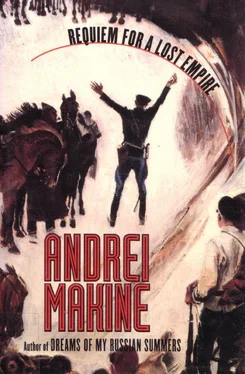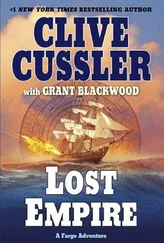One day this refuge lost its power. A soldier who had had both arms amputated escaped during the night, loomed up in front of the sentry with a threatening cry, and was killed by a burst of gunfire. The authorities preferred to call it an attack of madness rather than suicide. That evening, after a day in which there had been two men seriously burned and another amputation, I realized I had almost forgotten the suicide of the night before. When I went to bed I had to wait for the blissful weightlessness of morphine before admitting that within me there was no longer any place, no longer any moment, where I could hide.
Thus I lived, letting each new day obliterate the anguish of the previous one in the panic-stricken looks of the newly wounded. The only measure of time left to me was the all-too-evident progress in perfecting the weapons used by our soldiers and their enemies. I no longer remember in which war it was (it may have been in Nicaragua) that we first encountered strange bullets with a displaced center of gravity. They had the appalling characteristic of traveling through the body in an unpredictable way and lodging in parts that are the most difficult to reach. Some time after that cluster bombs appeared, ever more ingenious shells filled with needles that seemed to be dragging us into a macabre competition in which our normal surgical instruments frequently turned out to be ill adapted. And then one morning, the helicopter that was due to pick up the wounded and dead following a battle did not return. We learned it had been shot down by a new portable missile. From that morning onward what our ears detected in the throb of the propellers was a dull vibration of distress.
I had no time to reflect on the underlying causes of these wars. Besides, all the discussions I had with other doctors or with officer-instructors always used to end up in the same little geopolitical dead end. The world was becoming too small for the two vast, over-armed empires that shared it between them. They collided with another, like two icebergs in the bottleneck of a strait, they disintegrated at the edges, breaking countries in half, tearing nations apart; avoiding the worst while in disputed zones there was continual friction. Hiroshima and Vietnam sufficed to establish who was the aggressor: America, the West. Some of our number, the most prudent or the most patriotic, left it at that. Others would add that America, this convenient enemy, justified a good many absurdities in our own country. In return, our baleful existence helped the Americans excuse their own. This, they concluded was the price of global equilibrium. These sober conclusions would often be swept away a few hours later by an armored vehicle in flames whose steel shell echoed with the cries of people being burned alive or, as on the last occasion, by the death of the wounded man reaching out with his stumps toward bursts of submachine-gun fire. I made an effort not to comprehend these deaths, lest I make light of them in our discussions of strategy.
Curiously enough, it was thanks to a man who adored warfare that I was able to keep this salutary incomprehension intact.
A professional instructor, short, robust, and impeccably turned out in his elite mercenary's uniform, he introduced soldiers to new weapons and engines of war, explained how to handle them, compared characteristics. The room in which he gave his classes was separated from our operating theater by a fairly thin wall. His voice, in my opinion, could have cut through the roar of a whole column of tanks. I heard every word.
"This assault rifle has a tremendous rate of fire: seven hundred and twenty rounds a minute! It can easily be dismantled into six components and, as it's very light, you can fire it from a vehicle. And there are cartridge clips that take fifty rounds… This is a guided missile. It carries three warheads with an explosive charge that detonates after entering the target… With this caliber you can use armor-piercing rounds, explosive rounds, or even incendiary rounds."
His voice was only interrupted by the much softer one of the interpreter and occasionally by questions from the soldiers. I ended up detesting his tone, which tried to be authoritative and informal at the same time.
"Now look, my friend, if you don't tighten this fixing screw in properly, you'll be dead with the first shot…"
It was as if, still in theory, he were forecasting the results that would soon turn up on our operating table, in the form of human flesh lacerated by all these brilliant explosive, incendiary, and armor-piercing devices. Thus it was that I formed a part of a single chain of death, linking the politicians who decided on the wars, this gallant instructor who provided training, and the soldiers who would die or be stretched out naked beneath our busy gloved hands. And I did not have the classic humanitarian's feeble excuse, for I was often healing people just to put them straight back into the chain.
The notion of bursting into the lecture room and slitting this military man's throat in front of his listeners often occurred to me. It was a scene of rebellion from a movie about colonial wars, I would tell myself at once, for I perceived that the routines and lazy compromises of real life would gradually reconcile me to the voice on the other side of the wall.
"Now this is what you might call a flying tank… The cockpit has a titanium shield… It can be used both for daytime and night fighting."
So there I was, listening to him with my former anger gone. Like all talented speakers, he had a favorite topic. It was combat helicopters. He had flown several models before becoming an instructor. On this subject he waxed poetic. Through repeating the same tale to generations of soldiers, he had ended up creating a whole mythology in which he traced the birth of the helicopter, its teething troubles, the daring exploits of its youth, and, above all, the technical feats of recent times. This fabulous machine transported trucks, destroyed tanks, was loaded with equipment that protected it against missiles. I had the feeling that at any moment the voice on the other side of the wall might break into metric verse.
"The Americans thought they had us beaten with their Stinger, but they don't have a prayer in hell. We're installing infrared jammers and decoy-projectors there, at the ends of the blades. And that's not all! Even if a piece of shrapnel punctures the fuel tank, no need to panic: from now on the tanks are self-sealing! And even if the copter goes into free fall, you're still okay. The seats will withstand a fall rate of a hundred and twenty feet per second. Just think: a hundred and twenty feet per second! And what's more, the self-detonating bolts blow off the doors, a moment later a chute inflates, and you can bail out without being carved up by the prop."
There was a moment halfway through this epic poem where the officer-instructor's sincerity became beyond doubt. I ended up learning this episode by heart: at the height of the Yom Kippur War, in a sky riven by chopper blades, a helicopter from the Syrian army (a Soviet Mi-8 whose pilot had been trained by the instructor himself) was confronted by an Israeli Super-Frelon. And it was the very first dogfight between helicopters in human history! No one had ever foreseen that this machine could attack one of its own kind. With unprecedented perfidy the Israeli soldier opened wide the side door, aimed a machine gun, and riddled the Syrian helicopter. It crashed in front of the instructor's very eyes… When describing this battle the instructor sometimes said "Jewish," sometimes "Israeli": in his mouth the latter term became a kind of superlative of the first, to indicate the degree of spite and malignancy. However, like a true poet, he acknowledged the value of this evil genius, without whom History might have marked time and possibly lost one of its finest pages.
Читать дальше










